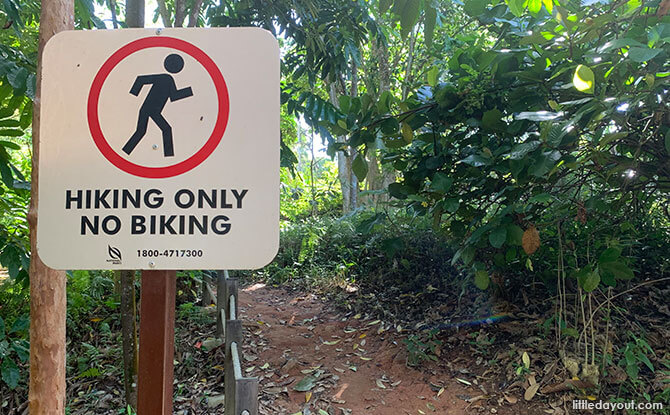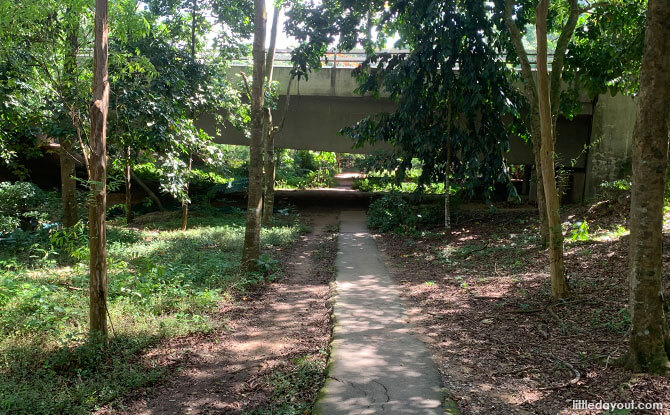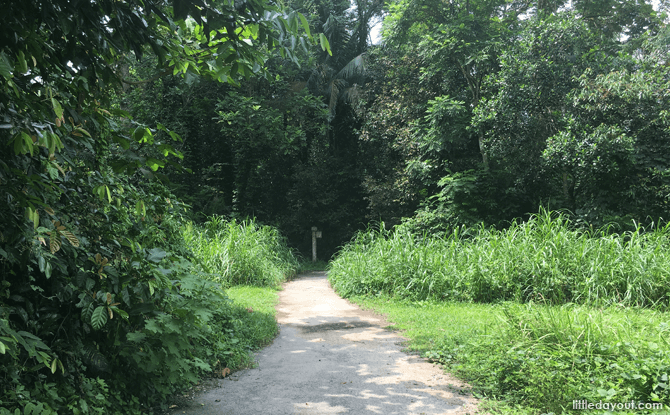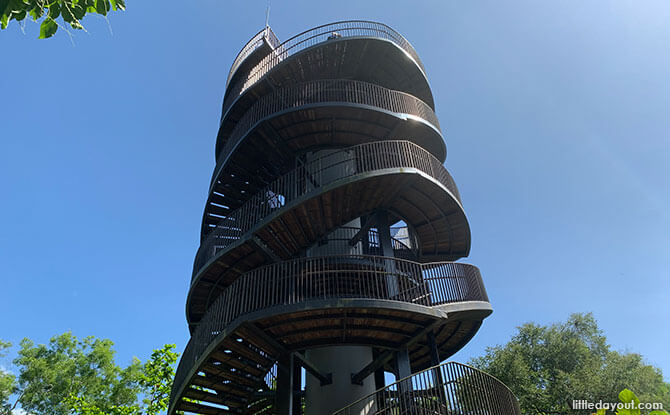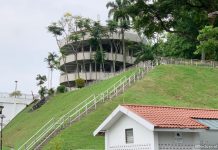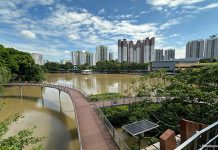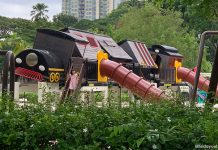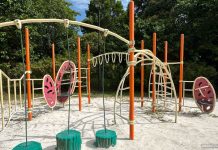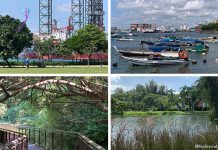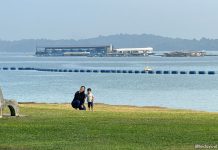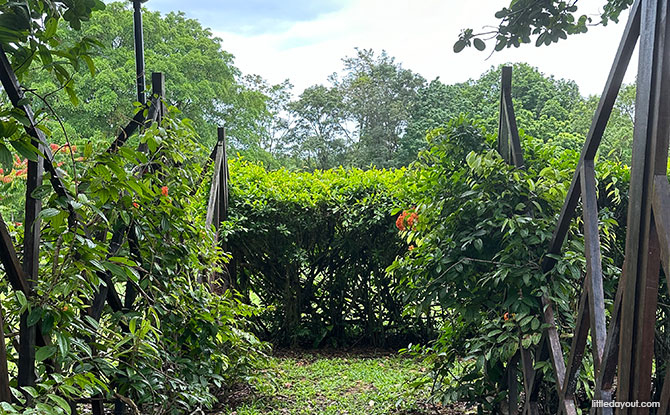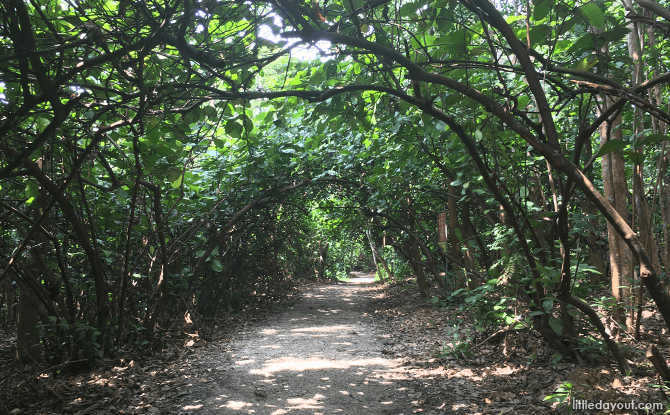
Chestnut Nature Park is Singapore’s largest nature park. Found along the western edge of the Central Catchment Nature Reserve, it can be accessed by car via Chestnut Avenue, close to Bukit Panjang. Here are 12 things you need to know about Chestnut Nature Park before paying a visit.
1. Chestnut Nature Park is Made Up of Two Parts
Chestnut Nature Park consists of Chestnut Nature Park (North) and Chestnut Nature Park (South). The southern portion of the Park opened in April 2016 while the north section of the Park opened in February 2017.
The north section of the Park is approximately four times the size of the south section of the park.
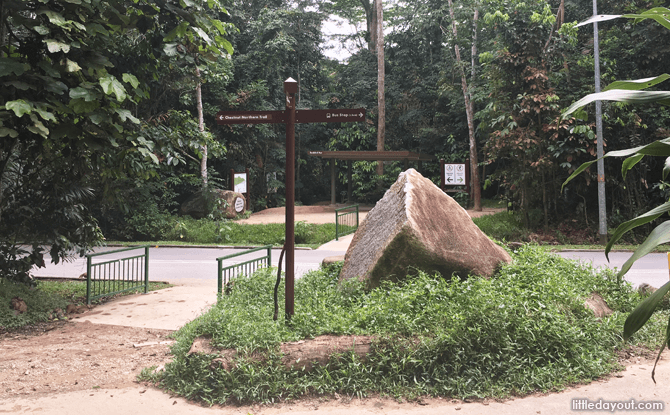
The two halves of the nature park are divided by Chestnut Avenue, a narrow two-lane road that runs from Petir Road to Chestnut Avenue Waterworks.
Year-end Holiday Camps: Discover Fun and Exciting Camps for Kids; Book Early
Farm Fright: Join City Sprouts For Their Halloween Bash On 26 Oct
In total, Chestnut Nature Park is 81 ha and serves as a green buffer between the nearby urban areas and the Central Catchment Nature Reserve.
2. Hikers and Bikers Have Separate Trails
NParks has designated separate trails for hiking and mountain biking. These trails run side-by-side at times, but they are clearly marked out and separated by barriers.
This makes it much safer for both hikers and mountain bikers. Be sure to stay on the correct trail at all times.
3. Limited Accessibility (Sort of) and Car Parking
Chestnut Nature Park is very inaccessible. Well part of it at least.
The closest bus stop is at Block 202 Petir Road, a 2 km walk away.
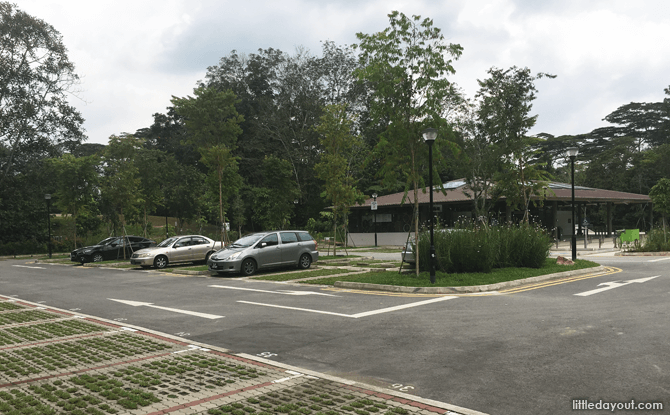
However, at busy times, you can expect the car park to fill up really fast. This results in drivers having to park along Chestnut Drive and start their hike sooner than expected as they make their walk to the nature park.
We do have a little tip. If you wish to visit the northern end of Chestnut Nature Park, you can actually do so from Bangkit Road. There is a track that runs under the Bukit Timah Expressway which will lead you to the northern side of the park.
4. Amenities are at Chestnut Point
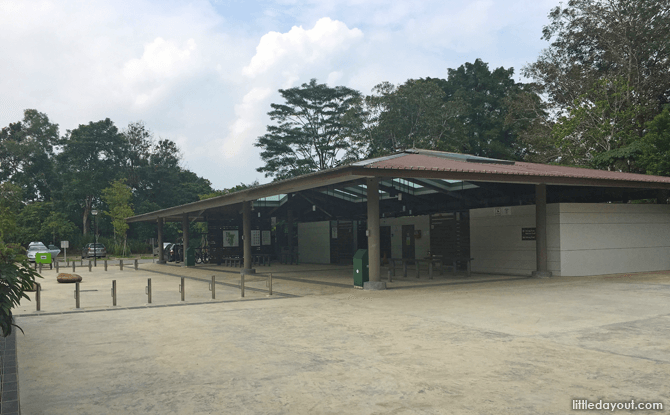
We didn’t spot any vending machines here, just some drinking fountains. Be sure to bring your own water bottles.
The toilets at Chestnut Point are the only ones that we spotted in Chestnut Nature Park – unless you consider vegetation an option.
5. Choose from 3 Hiking Trails
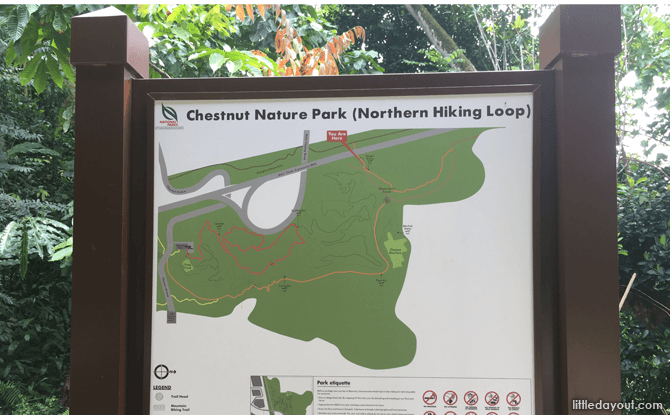
The two trails in the northern section of the park are the Northern Trail (2 km) and the Nature Trail (1.5 km).
The trail in the southern portion of the park is 2.1km long. It consists of two sub-trails, the Sunbird Trail and Drongo Trail.
6. The Northern Trail is NOT a Loop
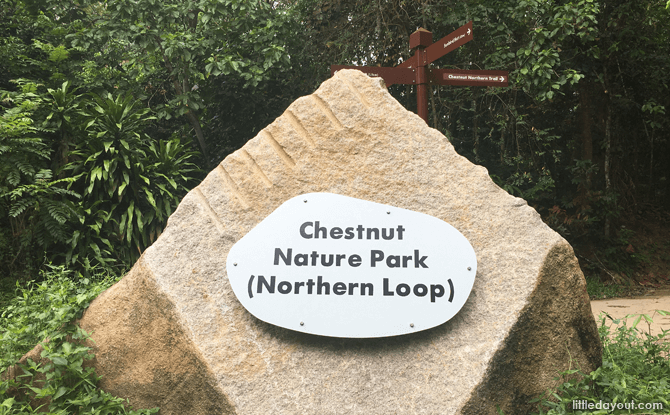
However, take note – the Northern Trail does not form a loop within Chestnut Nature Park.
Instead, if you start from Chestnut Drive and make your way north along the trail, the trail ends at a hut. From here, you can choose to press onward – out of Chestnut Nature Park – to Zhenghua Nature Park (and Bukit Panjang). Alternatively, you can turn around and RETRACE YOUR STEPS back to Chestnut Drive.
If you are going to make the return journey back to Chestnut Drive, be sure to factor this “loop” to your plans.
Having said that, the Northern Trail is an enjoyable trail to explore.
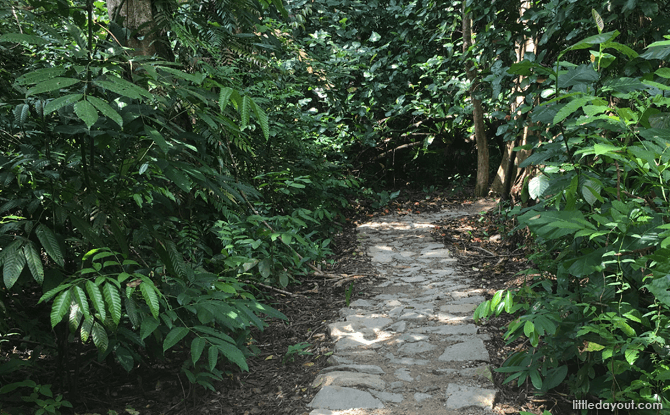
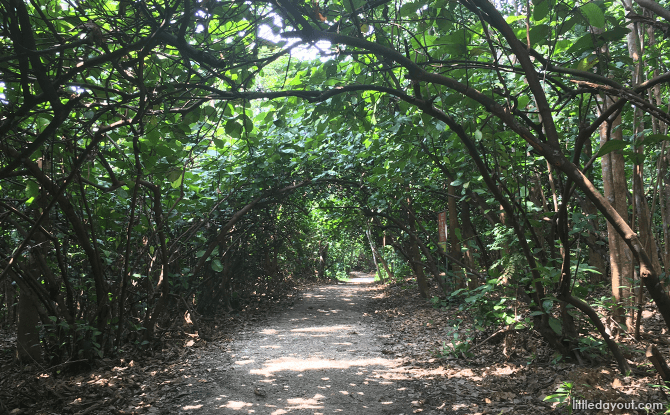
The clearing is where an observation tower, Chestnut Tower, is stands.
If you wish to press on northwards, you can also take the Mandai T15 trail, also known as the Gangsa Trail, towards Mandai Road. The start of the Mandai 15 trail is located beside the Chestnut Observation Tower and marked with a signboard that reads “Bukit Panjang Entrance”.
7. The Nature Trail is the “Water Trail”
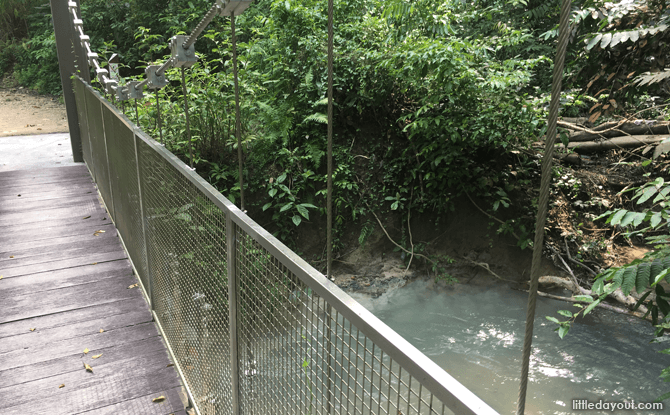
The Nature Trail takes hikers along dirt tracks, up and down undulating terrain. Keep a lookout for durian trees and remnants of old kampong buildings. A highlight of the Nature Trail is the bustling stream that you will encounter along the route.
Sections of the trail follow beside the stream, and the sound of rushing water makes a pleasant accompaniment to the hike.
8. The Southern Trail is the “Rocky Trail”
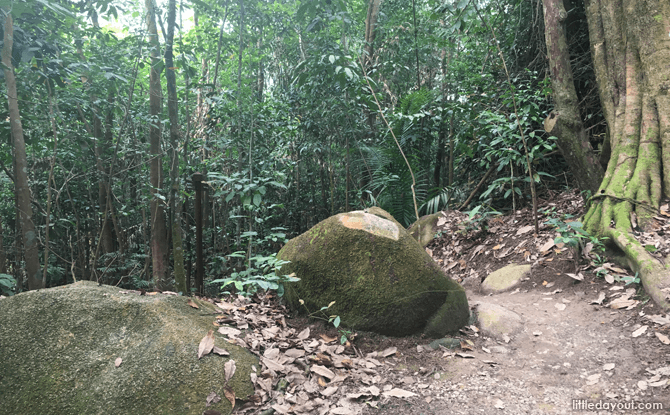
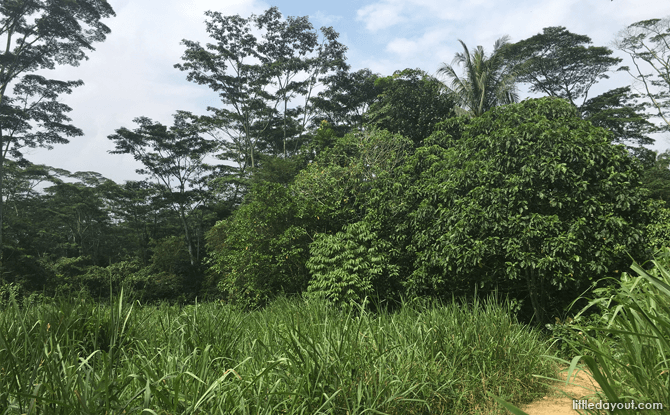
The Southern Trail forms a loop starting and ending at Chestnut Drive.
9. Look Out for Maps, Huts and Markers
As you walk along, maps on the trail allow you to get your bearings.
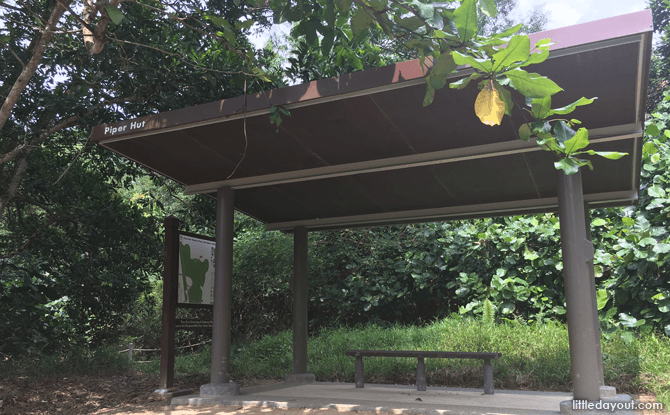
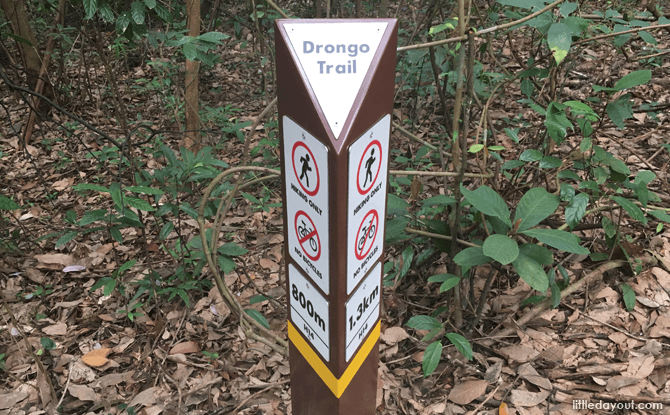
10. Pets are Not Allowed in Chestnut Nature Park
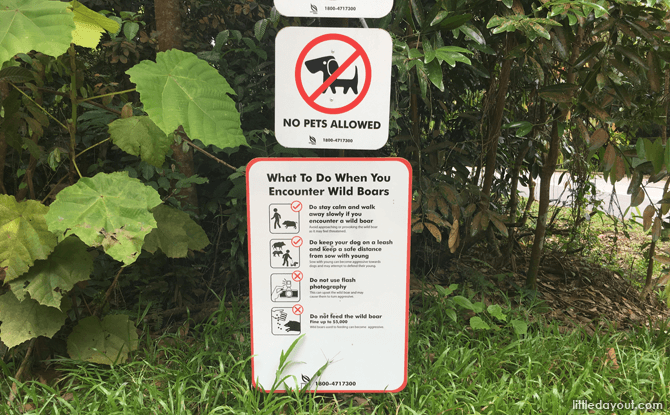
However, domestic pets aren’t allowed in Chestnut Nature Park – so leave Fi-Fi at home if you are planning a visit.
11. Keep Your Ears Open
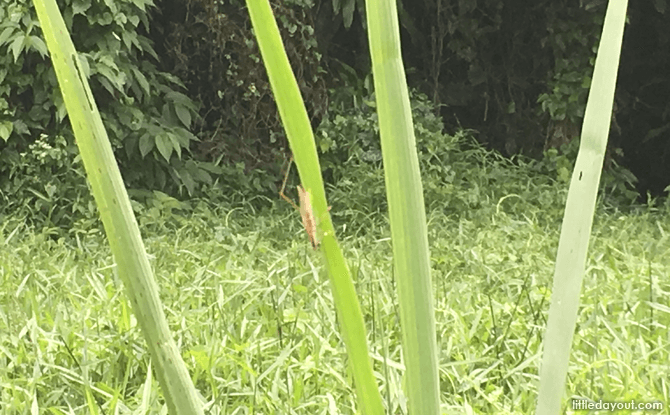
12. Pump Track for Mountain Bikers
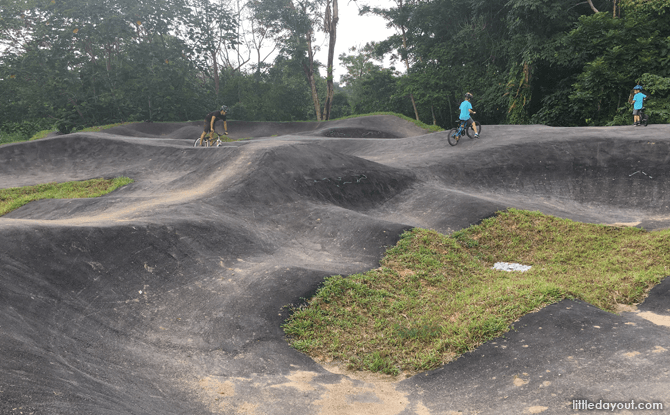
In addition to these biking trails, there is a pump track at Chestnut Nature Park. It is located beside the car park.
A pump track is an off-road circuit for mountain bikers – even kids – to practise their skills at manoeuvring bumps and banks. The name “pump track” refers to the pumping motion made by the rider’s upper and lower body as they make their way around the circuit.
[Editor’s note: The pump track is closed for maintenance till end of March 2020]





